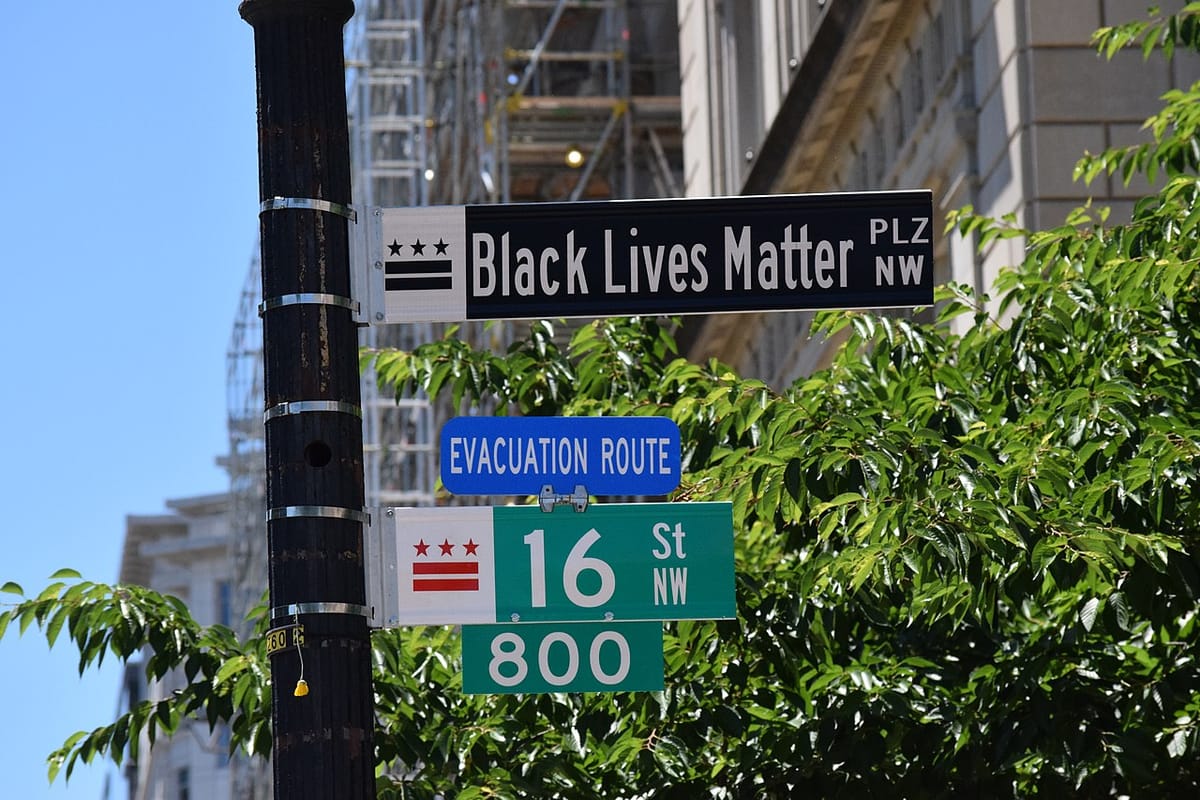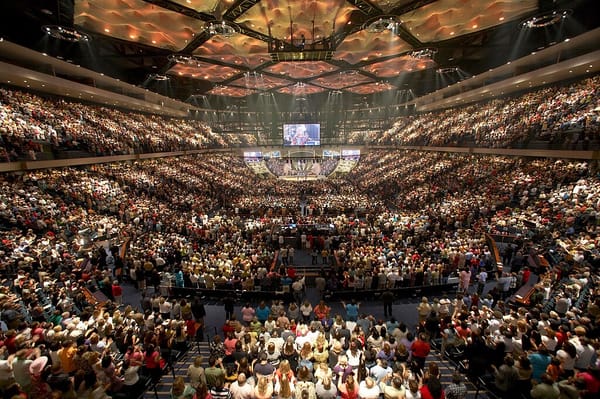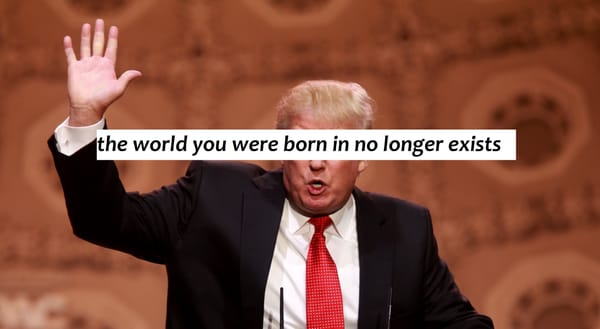In Praise of Wokeness
Don't blame woke ideas, which have merit, for the self-defeating style of politics that is pervasive online.

In 2014 the killing of Michael Brown in Ferguson, Missouri sparked a national wave of protests organized under the banner Black Lives Matter. That same year, the misogynist harassment campaign known as Gamergate swept across the online world. These two events woke America up from the dream of Barack Obama's election—the dream of a "post-racial" society, in which blatant racism and sexism were things of the past. Instead, we were all forcibly reminded that structures of bigotry and hierarchy—of white supremacy and patriarchy—persisted despite rumors of their demise. These moments, along with Occupy Wall Street, reinvigorated the American left and led to the dominance of progressive politics in the Democratic Party today.
So how is it that today we see not conservatives but leftists arguing that "woke" has run its course and must be discarded? A year ago, Jacobin declared that the threat of "woke capitalism" was "imaginary." Now it publishes Dustin Guastella's glowing review of Susan Neiman's Left Is Not Woke, arguing that not only is woke quite real, it's also quite bad. Almost simultaneously, Tyler Austin Harper laments in The Atlantic that wokeness has gone bipartisan. These authors all take aim at a strain of leftism that they say is excessively "tribal" and "identitarian."
They're wrong. But they're on to something. The core insights of "woke" politics are obviously correct. But these insights have been perverted into a style of politics that is more obsessed with maintaining one's own sense of self-righteousness than actually achieving better outcomes for anyone. This is not a matter of believing some specific false theory. Consider:
"All rapists should receive maximum jail sentences and also we should abolish the police"
"All housing should be owned and operated by the state for public benefit and also no one should ever be forced to leave their own home for the public good"
"Climate change is a generational emergency but congestion pricing is an unjust burden on the working class"
"America should have open borders and no gentrifiers should be allowed to move to my neighborhood"
"Nationalism is an invention of the capitalist ruling classes to mystify the workers, which is why Hawaiian national independence is a moral necessity"
"Bananas are imperialism but cocaine is a necessity and the Indians will scalp me when we landback"
And of course you, reader, likely have your own stock of such bizarrities, at least if you spend enough time online. The critical truth is that none of this adds up to a coherent picture of society. Yes, there are various theories lurking in the background here—standpoint epistemology, marxism, campism, anarchism, degrowth—but none of these theories is endorsed in a rigorous and consistent way. Rather, bits and pieces of them are deployed as tools when necessary to win specific fights. That is because the problem is not a false theory (though I happen to think these theories are in fact all false), but rather a style of politics. That style of politics can be summarized in "the social justice game." The social justice game has simple rules.
- I propose some change to society
- You associate me or my proposal with some real or imagined harm to a marginalized person
- I lose the game
At first glance the social justice game gives the superficial appearance of being the excavatory method that was central to Black Lives Matter, Occupy Wall Street, and MeToo, in which the real truths of enduring racism, sexism, and inequality were re-revealed to those of us who had drifted in a superficial meritocratic reverie. Structural injustice, sexist ideology, rigged economies: these required intellectual work to see. These acts of consciousness-raising were indispensable to the burgeoning progressive movement, just as they always have been. But this appearance of epistemic utility is misleading.
The function of the social justice game is not to advance a true or coherent theory of the world. The function of the social justice game is social: it is about positioning yourself as more righteous and more authoritative vis a vis others on the progressive spectrum. As Jonathan Smucker presciently put it in his reflection on the failures of Occupy, Hegemony How-To, this is about maintaining the social life of the group rather than achieving material ends. When you play the social justice game, you reinscribe the boundaries of the group by positioning yourself inside of it and your interlocutor outside of it. As Katherine Cross puts it in her Log Off, this style of politics is a mӧbius strip that gives the appearance of going somewhere but only ever feeds back into itself.
At this point you are probably getting angry at your screen. "Samantha! You are describing the behavior of a few online weirdos and attributing it to the whole left!" No, I am not. First of course is the point that they are not few. More importantly, the social justice game pervades progressive thinking, including serious thinking about policy. Consider the case of automated traffic enforcement, like speed cameras and red light cameras. Speed cameras substitute for the fraught interactions of police traffic stops; they are reliable, impartial, and don't charge overtime; and most importantly they are proven to be highly effective at reducing speeding and increasing safety. But of course it's common for progressives to oppose them. You see, speed cameras issue a disproportionate number of tickets to racial minorities. They're racist! We can't have that!
And of course it is true that speed cameras do issue a disproportionate number of tickets to racial minorities. Is this because the cameras are racist? No. It is because racial minorities tend to be poorer and therefore tend to live in neighborhoods with unsafe road design, and therefore more speeding, and therefore more traffic fatalities. Thus speed cameras also disproportionately save the lives of racial minorities and men and women and children living in poor neighborhoods generally.
Speed cameras are hardly the only example. The social justice game can be deployed to oppose any proposed social change.
We need to decarbonize our society, but not if it would involve any nuclear power
We need to defend Ukraine, but not if that would involve any military weapons
We need more housing, but not if a greedy developer would make a profit on it
The social justice game has no room for cost-benefit analysis, no room for coalition politics, no room for compromise. The social justice game is structured to support the status quo in practice no matter how much it rails against it in theory. It is an inherently anti-practical style of politics. It elevates the life of the group and one's sense of self-righteousness over any requirement to actually change the world.
Okay, enough. I did not come to bury wokeness. I came to praise it. The social justice game I described and the social world it creates are parasites on genuine progressive politics. And despite all of this, it's correct to be woke. We do live in a racist society! Patriarchy still shapes our social institutions! Our foreign policy is a long ways from ideal! Inequalities of income and wealth gape larger! Wake up and smell the twenty-first century!
What is necessary is to be willing to do something about it. What is necessary is to be willing to make real policy proposals that will effect real change in society. That involves compromises, coalitions, tradeoffs, costs and benefits, and more than anything the willingness to be in it for the long haul. You can keep the purity of your soul. I want to get shit done.
Featured image is Black Lives Matter Plaza Sign, by Bward3





